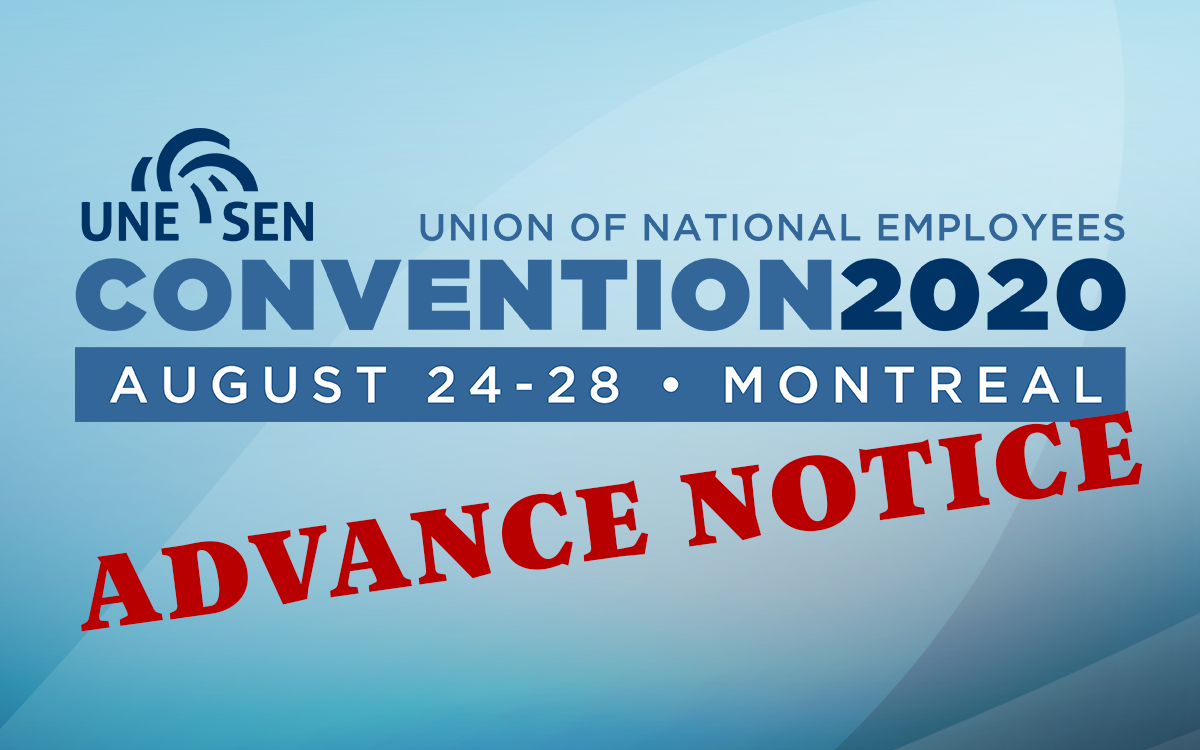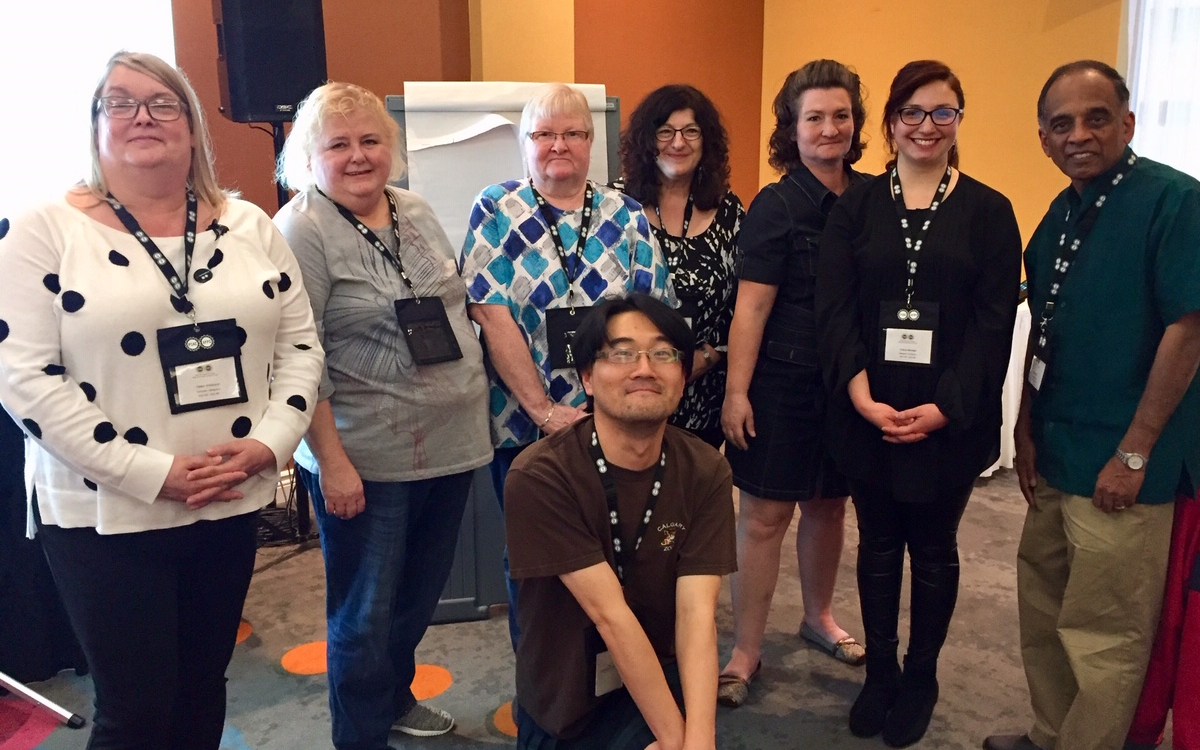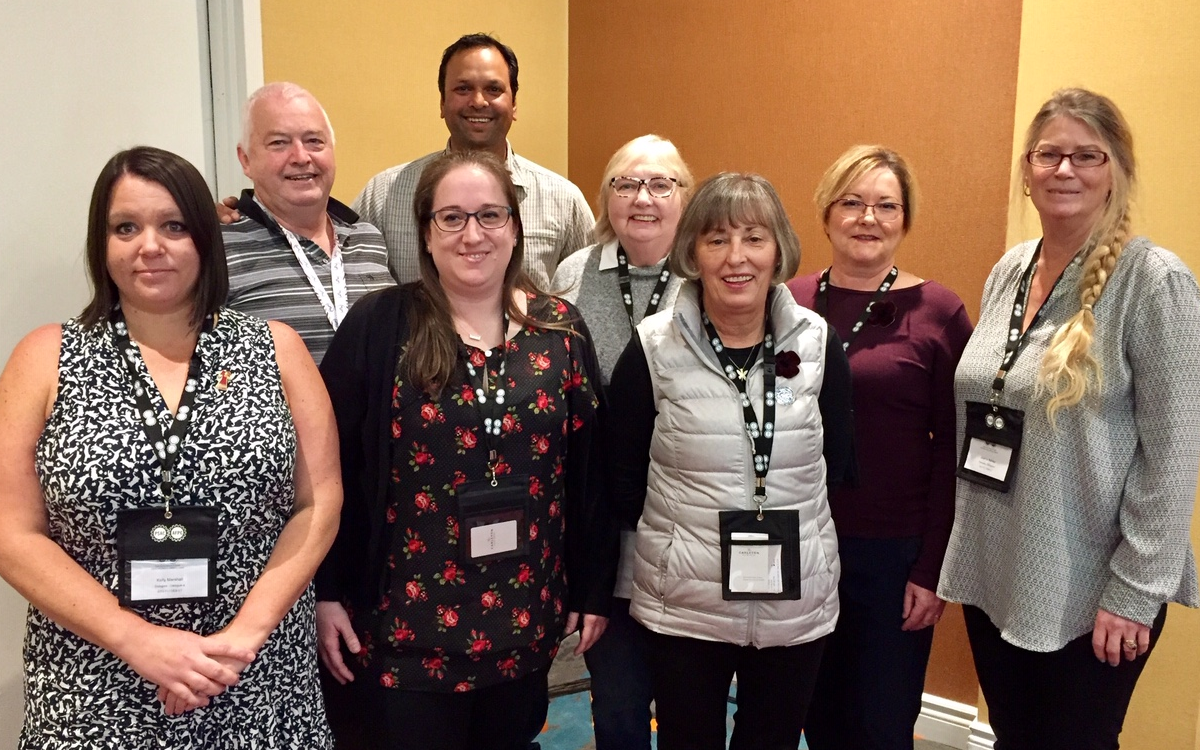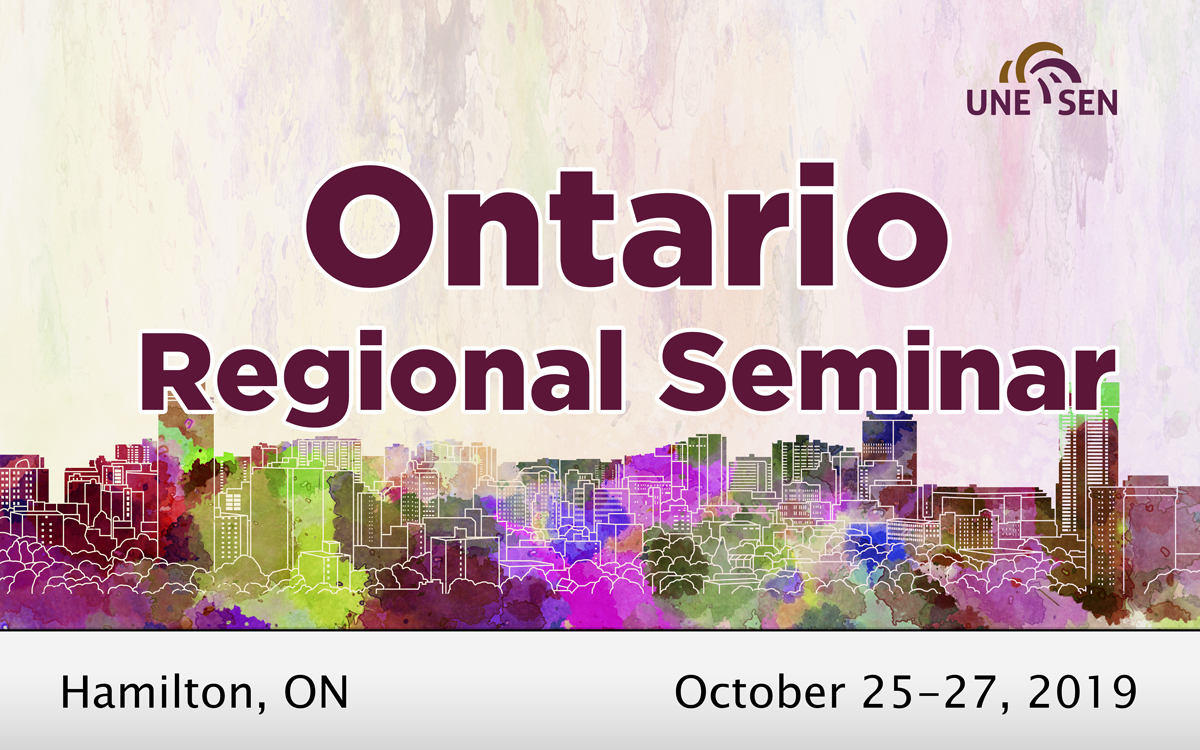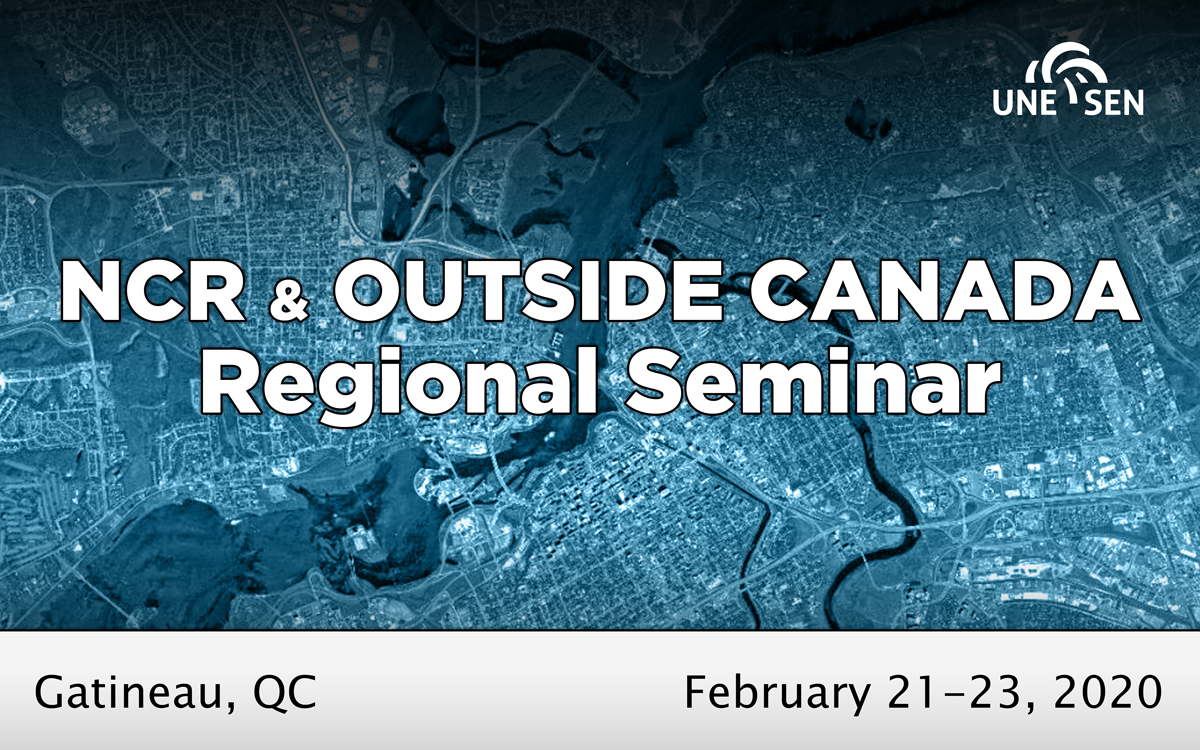
The NCR Separate Employers, Outside Canada, Ottawa-Treasury Board and Gatineau-Treasury Board Regional Teams invite you to participate in their combined Regional Seminar scheduled to take place at the Hilton Lac-Leamy Hotel, in Gatineau on February 21 – 23, 2020.
This event offers presentations and workshop training that will give you the knowledge and confidence to help your members. It’s also a great place to meet active members just like you and forge long-lasting friendships.
For a sneak-peek at what we have in store for you, check out the Seminar agenda.
In the NCR, UNE will fund the following delegates per Local:
- A Local President or designate should be one of the delegates;
- A member who has not previously attended a seminar should be given priority;
- Locals will elect a youth delegate to attend the Regional Seminar (age 35 or younger as of December 31, 2020).
In the Outside Canada region, UNE will fund the following delegates per Local:
- Ten (10) members from each Local, of which one (1) must be a Youth (age 35 or younger as of December 31, 2020);
- A member who has not previously attended a seminar should be given priority.
Locals are required to encourage the participation of equity members. Locals may send additional members at their own expense.
You must register by Friday, January 17, 2020. Unfortunately, we will not consider late registrations.
Should you have any questions about the Seminar please contact Suzanne Boucher at events@une-sen.org.
Delegates to the Regional Seminar should arrive for registration at 7 pm on Friday, February 21, 2020. Accommodations will be arranged for delegates to spend two nights at the Hilton Lac Leamy Hotel for the Friday and Saturday night of the Seminar as activities are scheduled to take place into the evenings. The Seminar ends on Sunday, February 23 at 12:30 pm.
Patrice Rémillard, Regional Vice-President, NCR-Separate Employers
André Miller, Assistant Regional Vice-President, NCR- Separate Employers
Mylène Séguin, Assistant Regional Vice-President, NCR- Separate Employers
Evelyn Beckert, Regional Representative for Human Rights, NCR- Separate Employers
Rose Touhey, Regional Vice-President, Outside Canada
Isabelle Beaudoin, Assistant Regional Vice-President, Outside Canada
Archie Campbell, Assistant Regional Vice-President, Outside Canada
Behiye Cinkilic, Regional Representative for Human Rights, Outside Canada
Cindy D’Alessio, Regional Vice-President, Gatineau -Treasury Board
Steve Racicot, Assistant Regional Vice-President, Gatineau – Treasury Board
Éric Poitras, Assistant Regional Vice-President, Gatineau – Treasury Board
Elizabeth Guerrero, Regional Representative for Human Rights, Gatineau – Treasury Board
Virginia Noble, Regional Vice-President, Ottawa – Treasury Board
Carla Ross, Assistant Regional Vice-President, Ottawa – Treasury Board
Janet Eileen Connor, Regional Representative for Human Rights, Ottawa – Treasury Board
